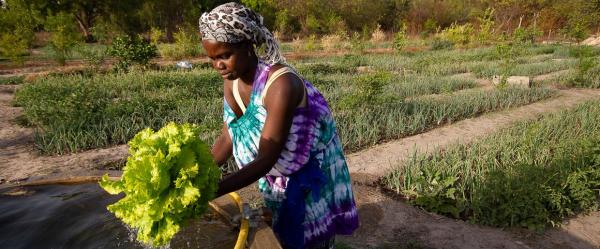Science at work 25 February 2026
- Home
- CIRAD news
- News
- Animal diseases: CIRAD supporting Zimbabwe
Animal diseases: CIRAD is supporting Zimbabwe

The primary aim of the CAZCOM project is to build technical capacity in Zimbabwe so as to strengthen control of animal diseases with a high economic impact, by fostering access to advanced molecular biology techniques and developing quality local research. Through 20 training courses and 640 hours of Masters teaching, the project is to provide training for six students, 50 technicians, engineers and researchers, and 30 other people in diagnostic techniques.
Insufficient disease surveillance
Zimbabwe has undergone profound change in the past 30 years as a result of a political and economic crisis. Animal production chains have suffered from a lack of surveillance systems to control animal diseases with a high economic impact (foot-and-mouth, avian influenza, brucellosis, East Coast fever, etc). The shortage of resources, qualified staff and advanced biotechnology infrastructures have prevented the country building appropriate health services and controlling such diseases effectively.
Changement climatique et maladies émergentes
These shortfalls are all the more problematic in that current climate change is tending to accentuate the emergence of diseases in humans, domestic animals and wildlife. The societal, environmental and economic cost of emerging diseases is huge.
CAZCOM has two years of funding from the French Ministry of Europe and Foreign Affairs (Fonds de solidarité pour les projets innovants), via the French Embassies in Zimbabwe and Malawi. It is being coordinated by CIRAD and conducted in partnership with the Faculty of Veterinary Science at the University of Zimbabwe (UZ), Ministry of Agriculture veterinary services, and the IRD.
Two years, one approach and three fields
The project has adopted an integrated approach: "One Health", applied to three fields:
- Strengthening technical and academic training: developing Masters-level training modules (epidemiology, vector-borne disease control and pathology, molecular biology techniques, surveillance and control tools); forging links between veterinary science, biology and ecology Masters; and supervising Masters students.
- Building technical capacity in the field of molecular biology: creation of a permanent international-standard molecular biology technology platform at the UZ Faculty of Veterinary Science; staff training in use of the new technology platform; development of scientific collaborations and partnerships with the private sector (farmers and laboratories).
- Establishing effective, autonomous disease surveillance: collection of biological samples to determine the diseases circulating at the interfaces between humans, wildlife and livestock; understanding how diseases are passed between species; organizing protocols for monitoring the dynamics of disease circulation; developing diagnostic tools for certain diseases; qualitative and economic assessment of surveillance systems; and identification of new surveillance systems tailored to the local situation and agricultural landscape.
Two things are expected to come out of the project: Zimbabwe should be conducting sentinel surveillance of various diseases that impact on animal and/or public health, and should have the human and technical resources to respond rapidly in the event of the emergence of a new disease. The project will thus benefit all the farmers and middlemen involved in livestock chains, in other words some 180 000 households and 900 000 people. It will also benefit the UZ Faculty of Veterinary Science, technical departments at the Ministry of Agriculture, the whole range of private laboratories and research organizations and, more generally, the entire southern Africa sub-region in terms of cross-border animal disease management and control.
A CIRAD platform at the heart of CAZCOM
CAZCOM is being implemented within the framework of a platform in partnership: Production and Conservation in Partnership in southern Africa (RP-PCP). Its efficacy will depend on the existing collaborations built by the platform. RP-PCP was founded on more than 20 years of collaboration between the universities in Zimbabwe, CIRAD and the CNRS in Zimbabwe, and is the fruit of a long-term partnership focusing on agricultural and ecological research for development and conservation.
* Zoonotic diseases, or zoonoses, can affect both humans and animals.



























